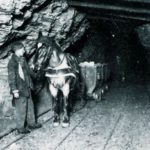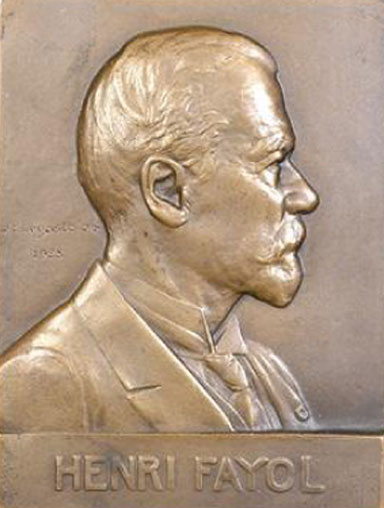Esprit de Corps
Who do you think coined the term esprit de corps?
- George Washington
- Ulysses S. Grant
- George Patton
- None of the Above
That’s OK, I did not know either … it’s #4. The esprit de corps expression was crafted by an engineer, not a military figure. Henri Fayol (1841 – 1925) was a mining engineer with Compagnie de Commentry-Fourchambault-Decazeville in Commentry, France (about 80 km south of Paris). Fayol was gifted in his understanding of policies and systems they gave workers greater freedom and more ownership of their work.
Fayol started his career with the company, much like any other newly graduated engineer, in the company’s mines in 1860 at age 19. Later, in 1916 as Managing Director ( CEO ) of the company, he wrote a book entitled “Administration Industrielle et Generale” famous today for his 14 principles of management. Esprit de corps was principle number 14. His thinking was “promoting team spirit will build harmony and unity within the organization”. While true, it is interesting that the 13 principles that preceded esprit de corps had to be in place first.
In addition, he wrote that you cannot have esprit de corps without excellence in these 5 functions of management:
- Planning (keeping the doors open)
- Organizing (materials in time for production)
- Commanding (encouraging and directing personnel)
- Coordinating (teamwork)
- Controlling (evaluating personnel)
One observation is that throughout his career he thought first of his fellow colleagues and the heart-and-soul of the firm – the miners. During his time at the mine, he studied the causes of underground fires, how to prevent them, how to fight them, how to reclaim mining areas that had been burned, and developed a knowledge of the structure of the basin. My hunch is that his effectiveness in management catapulted him to the position of Managing Director at the age of 47 was his understanding of the human spirit … what conditions and management policies made workers lives better.

And he did not stop when he made it to the top. During his time as Director, he made changes to improve the working situations in the mines, such as allowing employees to work in teams, and changing the division of labor.
Fayol’s brilliance was forged by his personal observations about what made work safer, easier and more rewarding. A century later the same principles apply.
